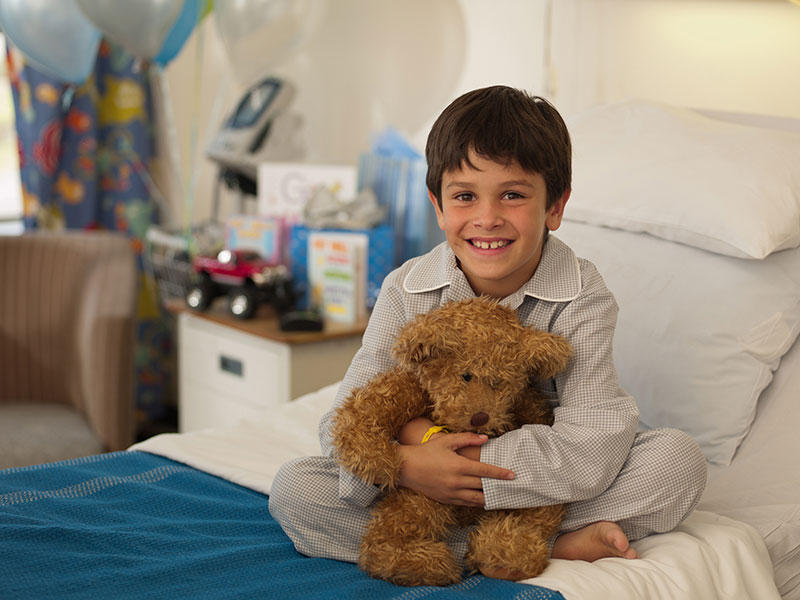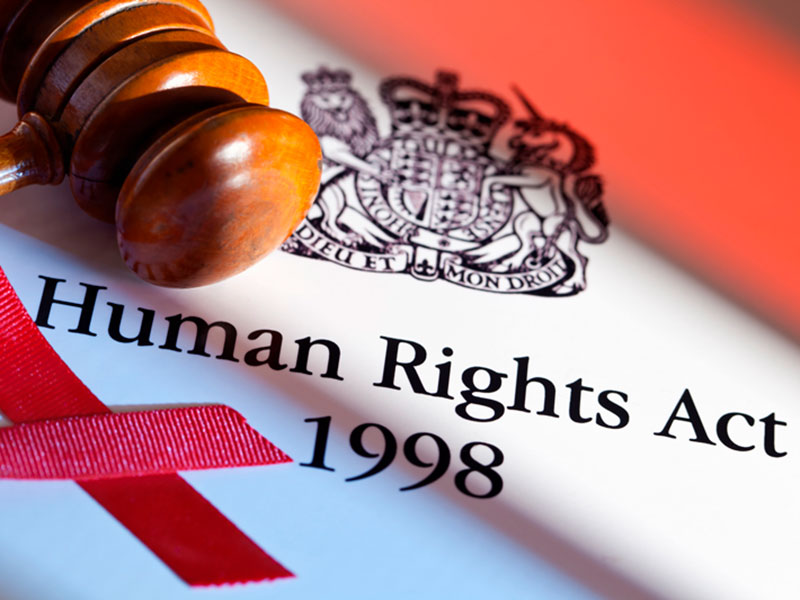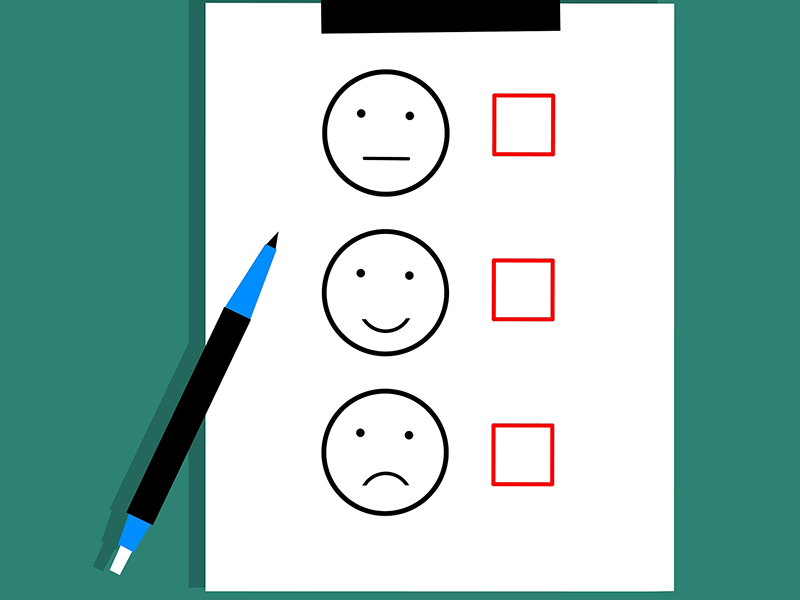






National legislation, regulations, policies and procedures are in place to promote diversity and to prevent discrimination. They are in place to promote everyone’s right to fair and equal treatment, regardless of their differences.
The Human Rights Act 1998 covers many different types of discrimination, including some that are not covered by other discrimination laws. Rights under the Act can be used only against a public authority, for example, the police or a local council, and not a private company. However, court decisions on discrimination usually have to take into account what the Human Rights Act says.
The Equality Act 2010 legally protects people from discrimination in the workplace and in wider society. It replaced previous anti-discrimination laws with a single Act, making the law easier to understand and strengthening protection in some situations. It sets out the different ways in which it’s unlawful to treat someone.
Yn y DU, mae nifer o ddeddfau, rheolau, rheoliadau, polisïau, dogfennau canllaw a chodau ymarfer statudol ar waith, ac mae pob un ohonynt yn hyrwyddo amrywiaeth, yn sicrhau cydraddoldeb ac yn rhoi terfyn ar wahaniaethu. Mae'r rhain ar waith er mwyn hyrwyddo hawl pawb i gael eu trin yn deg ac yn gyfartal, ni waeth beth yw'r gwahaniaethau rhyngddynt.
Mae Deddf Hawliau Dynol 1998 yn cwmpasu llawer o wahanol fathau o wahaniaethu, gan gynnwys rhai na chânt eu cwmpasu gan ddeddfau eraill mewn perthynas â gwahaniaethu. Dim ond yn erbyn awdurdod cyhoeddus y gellir defnyddio hawliau o dan y Ddeddf, er enghraifft, yr heddlu neu gyngor lleol, ac nid cwmni preifat. Fodd bynnag, rhaid i benderfyniadau llysoedd ynghylch gwahaniaethu fel arfer ystyried yr hyn y mae'r Ddeddf Hawliau Dynol yn ei ddweud.
Mae’r Ddeddf Cydraddoldeb 2010 yn amddiffyn pobl yn gyfreithiol rhag gwahaniaethu yn y gweithle a’r gymdeithas ehangach. Disodlodd wahaniaethu blaenorol gydag un Ddeddf gan wneud y gyfraith yn haws ei deall a chryfhau amddiffyniad mewn rhai sefyllfaoedd. Mae’n nodi’r gwahanol ffyrdd sydd yna o driniaeth anghyfreithlon.

Everyone that works in health and social care must ensure that they follow anti-discriminatory practice in their role in working with children and young people and adults. Employees have a duty of care to the individuals they care for, acting in their best interests and challenging any unfair practice, upholding their rights in doing so.
A rights-based approach could include religious and cultural choices being respected and an individual having the rights to practice these and be supported to do so.
Mae’n rhaid i bawb sy’n gweithio yn y sector iechyd a gofal cymdeithasol sicrhau eu bod yn dilyn trefn sy’n atal gwahaniaethu yn eu rôl wrth weithio gyda phlant a phobl ifanc. Mae’r gweithwyr yn gyfrifol am yr unigolion y maent yn gofalu amdanynt, gan wneud y penderfyniadau gorau drostynt ac amddiffyn eu hawliau.
Gallai dull gweithredu seiliedig ar hawliau gynnwys parchu dewisiadau crefyddol a diwylliannol, gan gefnogi’r unigolyn a rhoi’r cyfle a’r hawl iddynt eu hymarfer.

It is important that carers are aware of their own attitudes and how they affect their work. If, for example, their interactions with children and young people are affected because they label or stereotype them, or hold a negative prejudice against them, they are likely to be accused of discrimination. Or if they make all the choices for the individual, they are not delivering a rights-based service.
If a carer has a negative attitude towards a child or young person’s beliefs, cultural background, values and preferences and is dismissive or patronising, they will come across as being unconcerned about them and their individual needs. This will bring into doubt their ability to fulfil their duty of care. Carers must keep prejudices to themselves and maintain a positive attitude towards everyone, regardless of their differences. Carers should be respectful in their approach and show children and young individuals that they value them for who they are.
Carers need to build a rapport with individuals through a positive working relationship. This will ensure that all carers who are working with that individual are fully aware of their beliefs, preferences, needs and values. This co-productive approach will ensure that the individual is receiving a consistent approach to their care.
Carers should be able to implement the policies and procedures in practice in order to meet the needs of individuals, upholding their rights to fair and individualised care and support. By following relevant legislation and codes of practice, a team can work together, alongside other organisations to ensure that everyone is having their specific needs met.
Make a note of all the things that you do and could do that promote choices and rights-based approaches for the individual.
Mae'n bwysig fod gofalwyr yn ymwybodol o'u hagweddau eu hunain a sut maen nhw'n cael effaith ar eu gwaith. Os, er enghraifft, yw eu rhyngweithio gyda phlant a phobl ifanc yn cael eu heffeithio oherwydd eu bod yn eu labelu neu eu stereoteipio, neu'n coleddu rhagfarn negyddol yn eu herbyn, mae'n nhw'n debygol o gael eu cyhuddo o ragfarnu. Neu os ydynt yn gwneud yr holl ddewisiadau i'r unigolyn, nid ydynt yn darparu gwasanaeth seiliedig ar hawliau.
Os oes gan ofalwr agwedd negyddol at gredoau, cefndir diwylliannol, gwerthoedd a dewisiadau plentyn neu berson ifanc ac yn ddi-hid neu'n nawddogol, byddant yn cael eu gweld heb ddiddordeb ynddynt na'u hanghenion unigol. Bydd hyn yn bwrw amheuaeth ar eu gallu i gyflawni eu dyletswydd gofal. Mae'n rhaid i ofalwyr gadw rhagfarnau i'w hunain a chynnal agwedd gadarnhaol at bawb, heb ystyried eu gwahaniaethau. Dylai gofalwyr ddangos parch yn eu hagwedd a dangos i blant a phobl ifanc eu bod yn eu gwerthfawrogi am bwy ydynt.
Mae angen i ofalwyr adeiladu perthynas gydag unigolion trwy berthynas waith gadarnhaol. Bydd hyn yn sicrhau bod yr holl ofalwyr sy'n gweithio gyda'r unigolyn hwnnw yn gwbl ymwybodol o'u credoau, dewisiadau, anghenion a gwerthoedd. Bydd yr agwedd gyd-gynhyrchiol hon yn sicrhau bod yr unigolyn yn derbyn agwedd gyson at ei ofal.
Dylai gofalwyr allu gweithredu'r polisïau a gweithdrefnau yn ymarferol er mwyn ateb anghenion unigolion, gan gynnal eu hawliau i ofal a chymorth teg ac unigol. Wrth ddilyn deddfwriaeth a chodau ymarfer perthnasol, gall tîm weithio gyda'i gilydd, ochr yn ochr â sefydliadau eraill i sicrhau bod pawb yn cael ateb i'w hanghenion penodol.
Gwnewch nodyn o'r holl bethau a wnewch ac y gallech wneud sy'n hyrwyddo dewisiadau ac agweddau seiliedig ar hawliau i'r unigolyn.

All public bodies have a legal duty to contribute toward the realisation of children’s rights. A Children’s Rights Approach is consistent with these duties, and will help public bodies to meet their statutory duties.
We want to see a Wales which recognises children and young people as active citizens with an important contribution to make in their communities and nation.
Advocates can be valuable in empowering individuals to be able to express themselves whilst being supported or acting on behalf of the individual with their consent.
Advocacy is the process of speaking up about an issue that is important to the child or young person. This can be either self-advocacy, where the individual speaks on their own behalf, or citizen advocacy, where a volunteer from a local advocacy group speaks on behalf of the child or young person. It could also be a teacher or someone important to them.
Due to the complexity and sensitivity of some issues, advocates would be used within a professional capacity, for example a solicitor or welfare rights consultant. This form of advocacy does not replace the likes of citizen advocacy or self-advocacy but works alongside it, such as where a child or young person wants to live, or who with.
Mae gan bob corff cyhoeddus dyletswydd cyfreithiol i gyfrannu at wireddu hawliau plant. Mae Dull Gweithredu seiliedig ar Hawliau Plant yn cyd-fynd â’r dyletswyddau hyn, a bydd yn helpu cyrff sector cyhoeddus i gyflawni eu dyletswyddau statudol.
Rydyn ni am weld Cymru sy’n cydnabod plant a phobl ifanc fel dinasyddion gweithredol sydd â chyfraniad pwysig i’w wneud i’w cymunedau ac i’r genedl.
Gall eiriolwyr fod yn werthfawr o ran grymuso unigolion i allu mynegi eu hunain drwy eu cefnogi neu weithredu ar eu rhan gyda'u cydsyniad.
Eiriolaeth yw'r broses o leisio barn ynghylch mater sy'n bwysig i'r plentyn neu’r person ifanc. Gall hyn naill ai fod ar ffurf hunaneiriolaeth, lle y bydd yr unigolyn yn siarad drosto ei hun, neu eiriolaeth dinesydd, lle y bydd gwirfoddolwr o grŵp eiriolaeth lleol yn siarad ar ran yr unigolyn. Gall fod yn athro/athrawes neu rhywun sy’n bwysig iddynt.
Oherwydd natur gymhleth a sensitif rhai materion, byddai eiriolwyr yn cael eu defnyddio mewn cymhwyster proffesiynol, er enghraifft cyfreithiwr neu ymgynghorydd hawliau lles. Nid yw'r math hwn o eiriolaeth yn cymryd lle eiriolaeth dinesydd neu hunaneiriolaeth, ond yn hytrach yn gweithio ochr yn ochr â nhw, megis ble bydd plentyn neu berson ifanc eisiau byw, neu gyda phwy.

Professionals, organisations and even family carers need to be made aware of advocacy services and how they can support the individual. A child or young person may be living in a care or supported setting, or with their family, and can still avail themselves of an advocate.
In all cases the discussion is confidential to them and their advocate partner, unless there is a risk of harm or concerns. All of these activities contribute to supporting a rights-based approach by ensuring a child or young person’s voice is heard, irrespective of their communication needs or abilities.
Mae angen i weithwyr proffesiynol, sefydliadau a hyd yn oed gofalwyr teulu gydnabod rôl a gwaith eiriolwr o ran rhoi cymorth annibynnol i unigolion. Gall unigolyn fod yn byw mewn lleoliad gofal neu leoliad â chymorth, neu gyda'i deulu, a gall gael eiriolwr o hyd.
Ym mhob achos, mae'r drafodaeth rhwng yr unigolyn a'i bartner eirioli yn gyfrinachol. Gall partneriaethau o'r fath dyfu'n gyfeillgarwch hirdymor sy'n helpu i gefnogi a diogelu unigolion a'u diddordebau, yn enwedig os ydynt yn byw mewn lleoliad gofal hirdymor. Mae'r gweithgareddau hyn i gyd yn cyfrannu at gefnogi dull gweithredu seiliedig ar hawliau drwy sicrhau bod llais y plentyn neu’r person ifanc yn cael ei glywed, ni waeth beth yw ei anghenion neu alluoedd cyfathrebu.

Health and social care settings, like any other workplace, must be able to adapt, and ensuring that individuals have an awareness of and access to a robust complaints and concerns system is crucial.
A complaint is an expression of dissatisfaction about employees’ actions, lack of actions or the standard of service provided. A complaint could be one of the following:
Within the health and social care sector a complaint is an expression of dissatisfaction that requires an investigation and a response. Concerns are generally not so accusatory and might suggest how an issue could be improved or resolved.
Rhaid i leoliadau iechyd a gofal cymdeithasol, fel unrhyw weithle arall, allu addasu, ac mae'n hollbwysig sicrhau bod unigolion yn ymwybodol o system gadarn ar gyfer delio â chwynion a phryderon ac yn gallu ei defnyddio. Ystyr cwyn yw mynegiad o anfodlonrwydd â gweithredoedd neu ddiffyg gweithredu cyflogeion, neu safon y gwasanaeth a ddarparwyd. Gall cwyn ymwneud ag un o'r canlynol:
Yn y sector iechyd a gofal cymdeithasol, ystyr cwyn yw mynegiad o anfodlonrwydd y mae angen ymchwilio ac ymateb iddo. Mae pryderon yn llai difrifol ac yn llai cyhuddgar, a gallent awgrymu sut y gellid gwella neu ddatrys mater.

Prevention is most definitely better than cure in relation to complaints and concerns. A well-organised setting with sound and effective procedures in place covering a wide range of service delivery and safety expectations will receive fewer complaints and concerns.
Good communication with children and young people, their families or carers ensures the information they need is available, and individuals should be aware that they do have the right to complain as they enter the setting and during their time there.
Policies regarding health and safety and care provision will all help the smooth running of a setting. They will also reduce the likelihood of misunderstandings or dissatisfaction leading to complaints or concerns.
Yn sicr, mae'n well atal cwynion a phryderon cyn iddynt godi yn hytrach na cheisio eu datrys wedyn. Bydd lleoliad trefnus sydd wedi rhoi gweithdrefnau cadarn ac effeithiol ar waith mewn perthynas ag amrywiaeth eang o ddisgwyliadau o ran darparu gwasanaethau a diogelwch yn cael llai o gwynion a phryderon.
Mae cyfathrebu'n dda â phlant a phobl ifanc yn sicrhau bod y wybodaeth sydd ei hangen arnynt ar gael, a dylai unigolion wybod bod ganddynt hawl i gwyno pan fyddant yn mynd i mewn i'r lleoliad ac yn ystod eu cyfnod yno.
Bydd polisïau mewn perthynas ag iechyd a diogelwch a darparu gofal i gyd yn helpu lleoliad i redeg yn esmwyth. Byddant hefyd yn golygu bod achosion o gamddeall neu anfodlonrwydd sy'n arwain at gwynion neu bryderon yn llai tebygol.

It is important that care workers have a thorough understanding of their organisation’s complaints procedure and their role in this. On occasions, it might be appropriate for the care worker to assist the child or young person to initiate a complaint or concern. This is particularly important if the child or young person has no knowledge of the complaints or concerns procedures or if the child or young individual, their family or carers are disadvantaged by language or disability.
Support is given to try and resolve complaints and concerns at the earliest stage; this could be by offering advocacy or support to the individual if necessary. They will need to provide, if possible, a clear report of the outcome and information on what to do if the individual is not satisfied with the outcome.
Every individual and their family has the right to complain and to be supported to do so. They should not feel uncomfortable in doing so and this should not impact on the care they receive as a result of raising an issue. Allow time in a confidential area for an individual and/or their family to explain their concern. Write down word for word what the issues is in regard to. Make sure that once this information is forwarded to the relevant person within the organisation, that the complaint or concern is followed up and that all parties are informed of the outcomes.
Mae'n bwysig i weithwyr gofal ddeall gweithdrefn gwyno eu sefydliad, a'u rôl mewn perthynas â hyn, yn drylwyr. O bryd i'w gilydd, gallai fod yn briodol i'r gweithiwr gofal helpu'r defnyddiwr gwasanaeth i gwyno neu godi pryder yn y lle cyntaf. Mae hyn yn arbennig o bwysig os nad yw'r plentyn neu’r person ifanc yn ymwybodol o'r gweithdrefnau cwyno neu bryderon, neu os yw'r unigolyn, ei deulu neu ei ofalwyr dan anfantais oherwydd iaith neu anabledd.
Rhoddir cymorth er mwyn ceisio datrys cwynion a phryderon cyn gynted â phosibl, a gallai hyn fod drwy gynnig eiriolaeth neu gymorth i'r unigolyn os oes angen. Os oes modd, bydd angen i'r gweithiwr gofal lunio adroddiad clir yn nodi'r canlyniad a gwybodaeth am yr hyn y dylid ei wneud os nad yw'r unigolyn yn fodlon ar y canlyniad.
Mae gan bob unigolyn a'i deulu hawl i gwyno a chael cymorth i wneud hynny. Ni ddylai deimlo'n anghyfforddus wrth wneud hynny ac ni ddylai hyn effeithio ar y gofal a ddarperir iddo yn sgil codi'r mater. Caniatewch amser mewn man cyfrinachol i unigolyn a/neu ei deulu esbonio'r pryder dan sylw. Ysgrifennwch, air am air, yr hyn y mae'r mater yn ymwneud ag ef. Ar ôl i'r wybodaeth hon gael ei hanfon at y person perthnasol yn y sefydliad, sicrhewch fod camau dilynol yn cael eu cymryd mewn perthynas â'r gŵyn neu'r pryder a bod pawb yn cael gwybod beth yw'r canlyniadau.